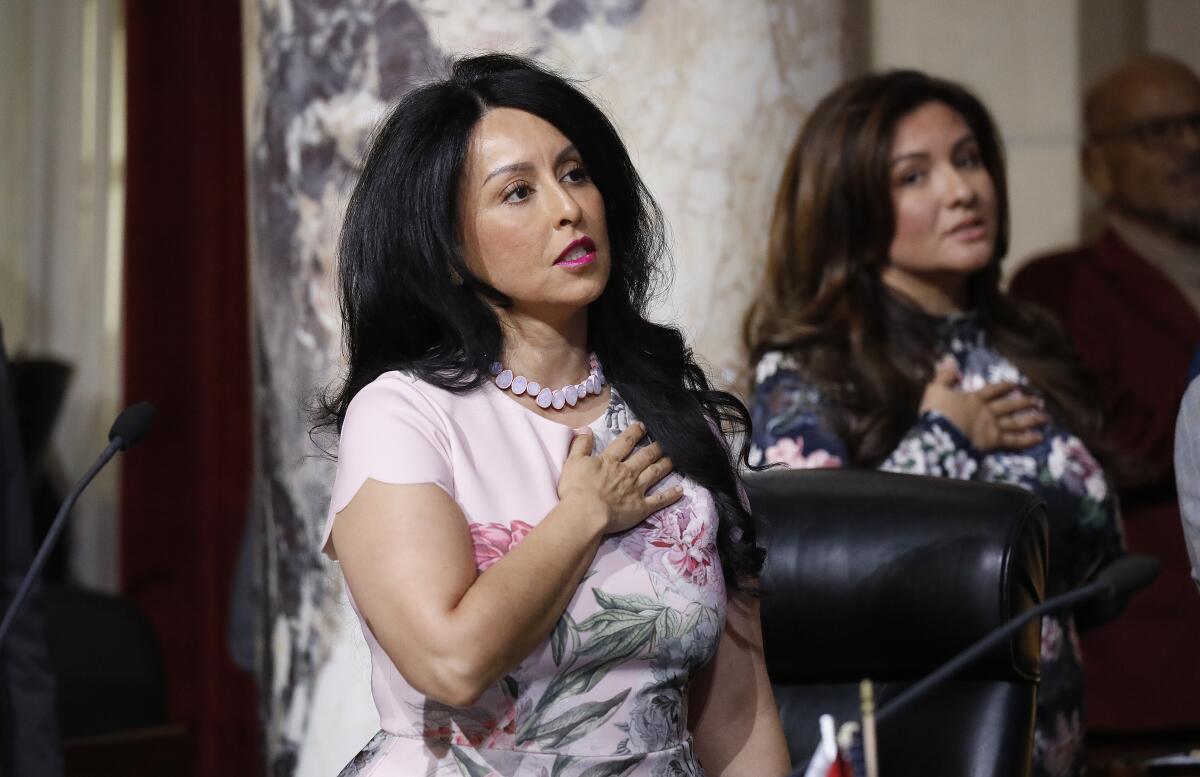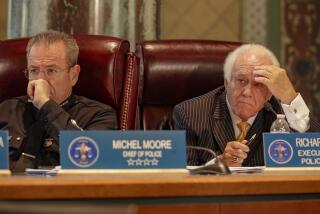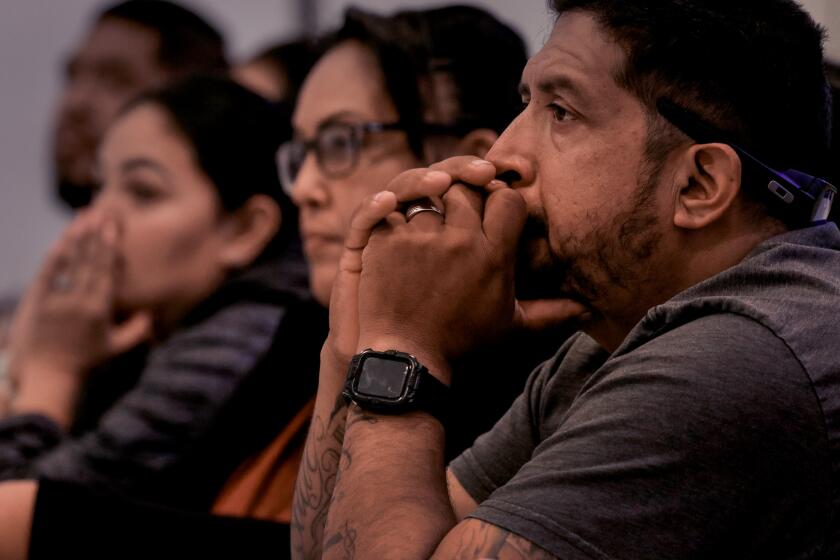L.A. blocks private detention centers, including facilities for immigrant youth

Los Angeles is blocking privately run detention centers from opening in the city, including facilities for immigrant youth in government custody, under a stopgap measure approved Tuesday by the City Council.
“Making any money off of the misery and the pain of children is morally wrong on so many levels — and we cannot allow this in our city,” Council President Nury Martinez said at a recent news conference.
The new rule is specifically aimed at stopping a privately run facility for “unaccompanied minors” from opening its doors in Arleta, a plan being pursued by the Tucson-based firm VisionQuest. Martinez had denounced that idea, saying that VisionQuest had a troubled history and “should not be anywhere near immigrant children.”
VisionQuest had hired a law firm to represent the company at City Hall and asked city officials about converting a Woodman Avenue building once used as an assisted living facility. The company said it had been awarded contracts from the federal government to operate facilities in Tucson, San Antonio and Southern California.
VisionQuest spokesman Jeff Bender said in an email that the Arleta site would be a “safe shelter to provide education, mental health, trauma counseling, healthcare and other necessary services to unaccompanied minors with a goal of reunifying them with family here in the U.S. and placing them in permanent homes within 10-60 days.”
“We don’t believe the language being proposed applies to us,” Bender said, “but we are interested in seeing what comes out of future meetings.”
VisionQuest has balked at its facilities being called “detention centers,” but Martinez has repeatedly cited the potential center in Arleta as an example of a facility that the new rules would block.
The new restrictions go into effect immediately. Under the interim ordinance, Los Angeles will not hand out any city permits or other approvals for any private detention center or “community detention facility for unaccompanied minors.”
Martinez has said that “you can call them whatever you want ... but I choose to call them prisons because that’s what they are.”
Immigrant advocates have pointed to past scandals involving VisionQuest, including staffers choking and slapping children at a north Philadelphia shelter, according to inspection reports obtained by the Philadelphia Inquirer.
“These are jails for children — and let’s be very clear about that,” said Angelica Salas, executive director of the Coalition for Humane Immigrant Rights, calling VisionQuest “a for-profit private corporation with a history of abuse.”
Bender said that more than 100,000 children had gone through VisionQuest programs and that “cases of abuse in our facilities are rare.” He said that any shelter organization, “whether for-profit, or nonprofit, must generate revenue to operate.”
“As a for-profit, we simply opt to pay taxes as well as reprogram our revenues into services,” Bender said.
Los Angeles isn’t the only city where the company has run into opposition: VisionQuest has been thwarted in other efforts to house migrant youth in north Philadelphia and the San Antonio area, and last week, a city commission in Waco, Texas, unanimously recommended turning down the company for a permit for a youth facility.
The temporary measure that Los Angeles officials approved Tuesday could be extended to last up to two years, an interim step meant to prevent the targeted facilities from opening while city officials prepare a permanent ban. Council members already voted last summer to draft rules prohibiting private detention centers, but that permanent ordinance has yet to be written and approved.
Under the L.A. measure, the council can still grant “hardship exemptions” from the restrictions on a case-by-case basis. The ordinance also does not apply in any instance where it would be “inconsistent with state or federal law.”
In reaction to questions Tuesday about any possible legal challenge to the ordinance, Councilman Herb Wesson said, “We think we’re on very solid ground.”
Martinez said she wouldn’t be surprised, however, if the federal government tried to undercut the L.A. rules, citing past clashes between the Trump administration and the state.
“You’ve seen this government come after the state of California, over and over again,” Martinez said.
More to Read
Sign up for Essential California
The most important California stories and recommendations in your inbox every morning.
You may occasionally receive promotional content from the Los Angeles Times.

![Los Angeles, CA - May 19: Carlos Vargas, left, and Paulina Rubio, members of the harm reduction team from Homeless Outreach Program Integrated Care Systems [HOPICS], a leading homeless services and housing agency, look for drug addicts to help and pass out supplies at a homeless RV encampment along 77th St. in South Los Angeles Friday, May 19, 2023. The team hands out syringes, fentanyl test strips, overdose reversal nose spray and medication to prevent overdoses, infection and disease transmission, including the HIV virus. Fenanyl is particularly insidious because it can be found in all other drugs, especially meth and heroin. The handouts are also meant to reduce infection through broken pipes, which can cut users mouths and open them to infection. . (Allen J. Schaben / Los Angeles Times)](https://ca-times.brightspotcdn.com/dims4/default/530e2db/2147483647/strip/true/crop/3900x2608+0+34/resize/320x214!/quality/75/?url=https%3A%2F%2Fcalifornia-times-brightspot.s3.amazonaws.com%2Fe9%2F77%2F4b8bd35d4881a3edec6b945b143b%2F1298639-me-soaring-fentanyl-deaths-24-1-ajs.jpg)









